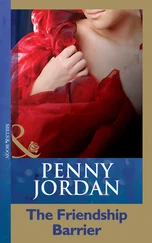Unsaid: I was a hypocrite. We both knew I used to be thrilled when you called me dear.
And allow you to point out: In no few cases, it was the student who seduced you.
But I remember there was one woman, early on, a foreign student, who’d rebuffed your advances and later accused you of punishing her by giving her an A minus instead of the A she deserved. As it turned out, this particular student made a habit of challenging grades, and the committee that investigated the complaint determined that the A minus was, if anything, suspiciously generous. Still: though romantic relations between teachers and students were not officially forbidden, your behavior showed a lack of propriety and of sound moral judgment and could not be tolerated.
A warning. Which you ignored. And got away with it.
It took years for you to change. Meaning, it took age.
You had just turned fifty. You had put on twenty pounds, which you would lose again, but not for some time. You arrived at the bar already tipsy, got totally smashed, spilled your guts. I wished you would stop. I hated it when you talked about women. It wasn’t jealousy, not anymore, and I swear I’d long since made my peace with this side of you. What I hated was feeling embarrassed for you. You knew there was nothing I could do, but you had to show me the wound anyway. Even if it required indecent exposure.
She is nineteen and a half—still young enough for “and a half” to mean something. She doesn’t love you, which you can bear (which, to be honest, you even prefer). What you can’t bear is that she doesn’t want you. Sometimes she fakes desire, though never wholeheartedly. Mostly she is too lazy to do even that. The truth is, she doesn’t care about the sex. She isn’t with you for the sex. The sex that she does care about, you know perfectly well, she gets somewhere else.
By now it has become a pattern: young women who are willing to fuck you but who share none of the desire that drives you to them. What drives them instead is narcissism, the thrill of bringing an older man in a position of authority to his knees.
Nineteen-and-a-half has your heart on a string. Tug, tug, this way—no, that way, professor.
You liked to say (quoting someone, I think) that young women are the most powerful people in the world. I don’t know about that, but we all know what kind of power is being referred to.
Promiscuity had always been second nature to you (your father before you, it seems, had been the same). And given your looks, your gift for words, your BBC accent and confident style, you had no trouble attracting the women you were attracted to.
The intensity of your romantic life was not merely helpful but essential to your work, you said. Balzac lamenting after a night of passion that he’d just lost a book, Flaubert’s insistence that orgasm was a drain on a man’s creative juices—that to choose the work over the life meant as much sexual abstinence as a man could endure—these were interesting stories but, at bottom, silliness. If such fears were grounded, monks would be the most creative people on earth, you said. And after all, plenty of great writers were also great womanizers, or at least known to have potent sex drives. You write for two people said Hemingway, you said. First for yourself, then for the woman you love. You yourself never wrote better than during those periods when you were having lots of good sex, you said. With you, the beginning of an affair often coincided with a spell of productivity. It was one of your excuses for cheating. I was blocked and I had a deadline, you once told me. Not even half joking.
All the trouble your womanizing brought into your life was well worth it, you said. Of course you never seriously considered changing.
That change must come—and without your having any say in the matter, either—was something you appeared not to have worried overmuch about.
One day, in a hotel bathroom, you receive a jolt. A full-length mirror positioned directly across from the shower door. Nothing too hideous for a middle-aged man. But, in the glare of the vanity lights, truth won’t be denied.
That is not a body to turn any woman on.
A power has been taken away, it can never be given back again.
It felt, you said, like a kind of castration.
But that’s what age is, isn’t it? Slo-mo castration. (Am I quoting you here? Did I get this from one of your books?)
The pursuit of women was so much a part of your life, you could scarcely imagine doing without it. Who would you be, without it?
Someone else.
No one.
Not that you were ready to give up. For one thing, there were always whores. And the bedding of students was by no means at an end. After all, it wasn’t as if you didn’t already know that, to the young, even a man of thirty is over the hill.
But not till now had you had to be content with couplings in which the other submitted—submitted completely—completely without desire.
Another mirror: Disgrace , by J. M. Coetzee. One of your—our—favorite books, by one of our favorite writers.
David Lurie: same age, same job, same proclivities. Same crisis. At the beginning of the novel he describes what he sees as the older man’s inescapable fate: to be the kind of john prostitutes shudder at as one shudders at a cockroach in a washbasin in the middle of the night .
In the bar, drunk, maudlin now, you tell me how you went to kiss your baby and she shrank from you. I got a neck cramp, she said.
Why don’t you stop seeing her, I say—mechanically, knowing full well that you are incapable of sparing yourself far worse humiliation.
David Lurie is so appalled by his degraded state—no longer sexually attractive but still squirming with lust—that he finds himself musing about actual castration, the possibility that one might get a doctor to do it, or even, with the help of a textbook, do it oneself. For would that really be any more disgusting than the antics of a dirty old man?
Instead, he forces himself on one of his students, a cannonball dive into disgrace that will be his undoing.
This was a book that you read with your skin.
But you were luckier than Professor Lurie. You never knew disgrace. Embarrassment, often. Sometimes shame. But never true, irremediable disgrace.
Wife One had a theory. There are two kinds of womanizer, she said. There’s the kind that loves women and the kind that hates them. You were the first kind, she said. She believed that women tended to be more forgiving, more understanding and even protective of your kind. Less likely when wronged to want revenge.
Of course, it helps if the man is an artist, she said, or has some other type of noble calling.
Or is some kind of outlaw was my thought. That type above all.
Q. What is it that makes a womanizer one type or the other?
A. His mother, of course.
But you made a prediction: If I go on teaching, sooner or later I will come to grief.
I feared so too. You were one of several Lurian friends I’ve known: reckless, priapic men risking careers, livelihoods, marriages—everything. (As to why , the stakes being what they are, the only explanation I’ve ever been able to come up with is: because that’s how men are.)
How much of all this does Wife Three know? How much does she care?
I have no idea and no desire to find out.
As if I had spoken my thoughts, she says, “Let me tell you why I wanted to talk to you.” At these words for some reason my heart starts to pound. “It’s about the dog.”
“The dog?”
“Yes. I wanted to ask if you would take him.”
“Take him?”
“Give him a home.”
It is just about the last thing I was expecting her to say. I feel equally relieved and annoyed. I can’t do that, I tell her. There are no dogs allowed in my apartment building.
Читать дальше












